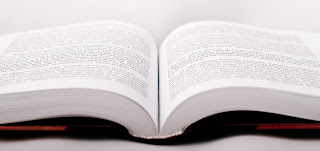Books as Commodity
Artistic value is as hard to measure as intelligence. That said, books cost money. A lot of money. So as long that it costs money, it's measurable. Every book in the market, in paper or digital format, depends its entire existence on very concrete and measurable factors.
The Writer
Say that a writer needs X amount of calories, Y amount of hours, Z amount of travel to produce a book. Multiply that number by the book's level of artistic value. The more beautiful a book, the more education, experience, emotional intelligence, spiritual strength it takes from the writer. When Norman Mailer said that, "Every book killed me a little," he wasn't kidding.
In addition to all that, consider that every writer will need to spend the whole of his lifetime practicing writing to produce his magna carta. It took Dostoyevsky everything from The Idiot, Notes from Underground, Crime and Punishment, until he eventually concluded with the Brothers Karamazov. This was a Russian artist, so that took a lot paper and a lot of rewriting and a lot of nights at the verge of insanity.
When the artist got it easy at practicing, and his debut novel shot through the sales early in his career, it would have still taken a lot of sacrifices from others. Steinbeck, Hemingway, Vonnegut and Mailer got dented in their heads from their experiences at war. Surviving war, unlike love, spreads a person's soul on the misery of others, destroying every flicker of vanity with trauma. (While love encapsulates the world in an impenetrable bubble of self-awareness.)
War, as a dark patron of the arts, is a powerful catalyst that not every nation, not every writer is able to stomach, or unbraid through his letters. Though, done carefully and successfully, the worst state of humanity can fuel the beacon for those who learn and take guidance from it, for as long as the book is being read, one heedful generation after another.
The Publishing Industry
Say that a writer was strong and patient and patronized enough to write a book. Does it automatically get published and start soaring merely for its merit? Try again.
For a book to show up in a bookstore (in digital or paperback format), it needs to be properly edited, formatted, covered, and prettified. For that book to stay on that bookshelf, it needs to sell. Selling a book is not very different from selling a house or a pack of cigarettes: It needs marketing, advertisement, seasons, signing, touring. The whole brouhaha.
For the book to get reprinted in second, third, or Centennial editions, it needs to arrest of the market's attention long enough to justify the work it takes to repackage, resell and reserve that precious spot on a bookstore shelf.
The book publishing industry, at the end is a business model, and a kind that has been fluid enough to evolve along the change of times. One of the book publishing's techniques of survival is providing supermarket books, genre fiction, non-fiction, tabloid magazines by the bulk, to bear the publishing industry's 80% of market appetite.
On the long run, some of that money (ideally) would go for good cause. And that good cause happens in two ways:
i) Maintain loyalty in a market segment.
People who love to read, will read, regardless to genre. At least a part of that market would continually evolve in their tastes for books. People grow up, situations change, needs need to get fulfilled and there should be a book to satisfy these changing needs along the hierarchy of needs and psychosocial stages.
ii) Support the book industry's idealistic values.
When it comes to the literary novels, the kind that has made me vent thousands of words into these series, the system becomes dependent on awards. Literary novels aren't meant to sell fast and plenty. Not a lot of people outside of Turkey would have recognized Orhan Pamuk if he didn't win the Nobel Prize. I honestly wouldn't have made the effort to read through DBC Pierre's Vernon God Little without a Booker stamp on the cover.
And how do you finance a book award event or a literary competition? I'm making my wildest guess, but in some way, there has got to be enough number of readers out there who care about artistically valuable books, to create and maintain all the awards, the festivals, the writers, and the book publishing industry.
The Reader
The paradox of literary novels is that they need to be written personally enough by the writer, while at the same time still sport universal values to make it relatable to the normal reader.
Universal values? Lessons? Normal? Why would a regular layman want to spend his hard-earned leisure minutes reading about reality? Hence, only 6% of the book market has the balls to read literary fiction.
What makes the profile of a literary fiction reader? Who would be crazy enough to read artistic stories for their educational entertainment? Based on the statistics, she's most likely female. Based on Maslow and Erikson, she would have to be at a stage where her basic, security and intimacy needs have been fulfilled and secured. Upper-middle class. College level education. Aware of social injustice. Sensitive. Emphatic. Curious. Worth fighting for. Based on Alia Makki, she's worth every word. Worth writing literary novels for, to remind her that her opinions matter, her sensitivity is worth protecting; for that is also the voice of the world's conscience, so long that she keeps her heart and mind and actions straight.
This is why literature matters. We ain't so tough, and we need verbal, cliodynamic and concrete reminders to keep us straight.


